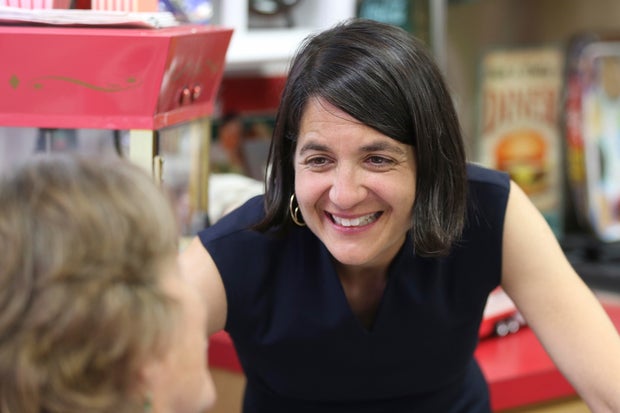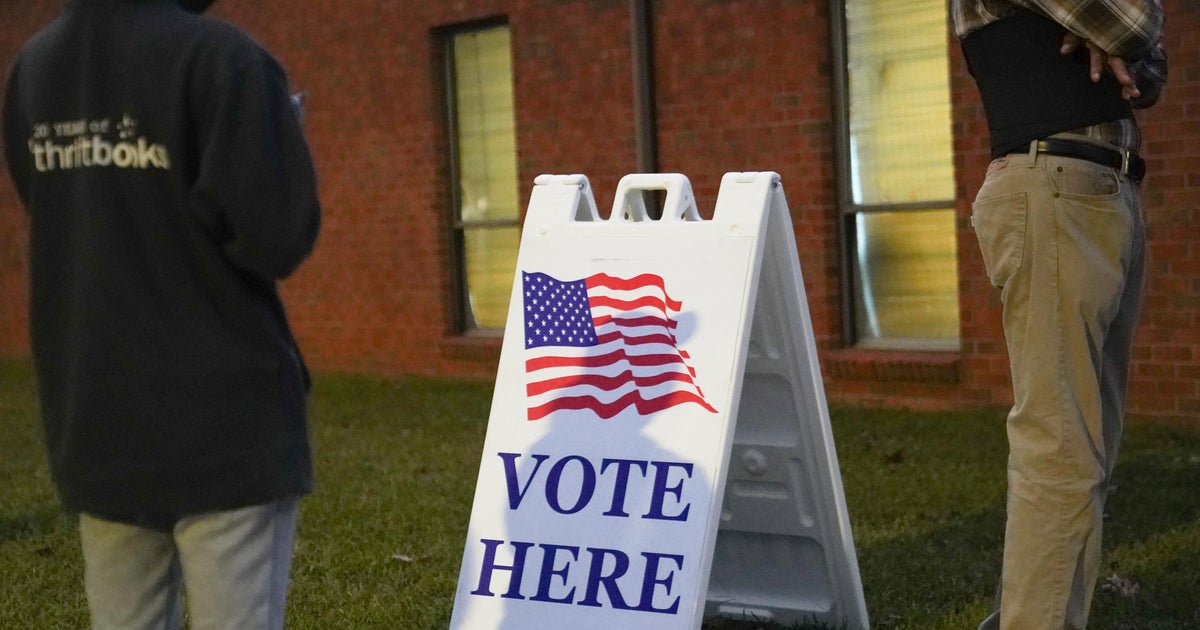"Culmination of truly a lifelong dream ": Vermont poised to send woman to Congress for first time
Becca Balint on Tuesday won the Democratic primary for Vermont's sole congressional seat, meaning the state could for the first time elect a woman to represent them in Congress.
Two years ago, Vermont became the only state in the nation that has yet to send a woman to represent them in Congress. Sen. Cindy Hyde-Smith of Mississippi was elected in 2020, after she had been appointed two years earlier to finish Sen. Thad Cochran.
"This is sort of a culmination of truly a lifelong dream of being able to be in public servants as an openly gay woman," Balint told CBS News.
If elected, Balint will not only make history by being the first female figure sent by Vermont to Congress but she would also be the first openly gay member to represent the state.
Although Republicans had two women running, meaning if one of them won, it would be guarantted the state would send a woman to Congress for the first time, Liam Madden won the Republican primary on Tuesday.
Madden won the GOP primary with 37% of the votes defeating two women, Ericka Redic with 27% and Anya Tynio with 23%. Although he initially said he would not accept the GOP nomination if he won the primary, he said Wednesday that he would accept the nomination after all to ensure there would be two people on the ballot.
For the director of the nonprofit Vermont Women's Fund Meg Smith, it's about time the state sent a woman to Congress.
"I can safely say it's been actually a huge embarrassment that there's never been a woman sent to Congress by the state of Vermont," Smith told CBS News.
The Vermont Women's Fund is a nonpartisan organization focusing on raising money through philanthropic activities to distribute them as grants to nonprofits across the state supporting women and girls in their development.
"When we think about debates that will be held in Congress that have real implications for the lives of women in Vermont, it's important that a woman from Vermont be there at the table and in the chamber," the head of research at the Center for American Women in Politics Kelly Dittmar says.
Balint is aware of the importance of being inside the room where everything happens.
"I think we do politics best when the community at large or that all of us feel represented, not just because it's important to have role models, but because we make a difference in the committee rooms when we bring up issues that are important to us," Balint says.
Electing a female figure representing Vermont in Congress gains even more relevance for residents this year as an amendment to the state's constitution to protect abortion rights will also be on the ballot this November.
Over the last four years, the state has been debating whether to add a constitutional amendment to protect abortion rights.
Earlier this year, the state legislature approved the "Reproductive Liberty Amendment," previously known as Proposition 5.
The amendment says "that an individual's right to personal reproductive autonomy is central to the liberty and dignity to determine one's own life course and shall not be denied or infringed unless justified by a compelling State interest achieved by the least restrictive means."
"The dearth of women's congressional representation in Vermont is evidence that across the country we have a lot of work still to do in terms of getting to gender parity, in elected representation," Dittmar told CBS News.
Dittmar says that the combination of a small congressional delegation – there's only one at-large seat – and that men have held their seat for years has impacted representation among Vermont congressional delegates.
"The lack of term limits at the congressional level certainly dampens the opportunity for political newcomers," Dittmar said.
"There have just been few opportunities for women to take this seat in history, but it is still telling that in 2022, there still exists one state in the nation that's never sent a woman to Congress," Dittmar added.
Although 49 states have sent at least one female figure to Congress, there are 10 states that don't currently have women representing their constituents.
"When we talk about why representation matters… It's about democratic fairness and legitimacy. If it is meant to be a representative democracy, then it should be as representative as possible of the constituencies that it serves," Dittmar said.
The possible milestones that Vermont could see in November is one that its residents hope it can resonate nationwide.
"I hope people across the nation are watching and listening… this is all of us, helping to create positive change," Smith added.




